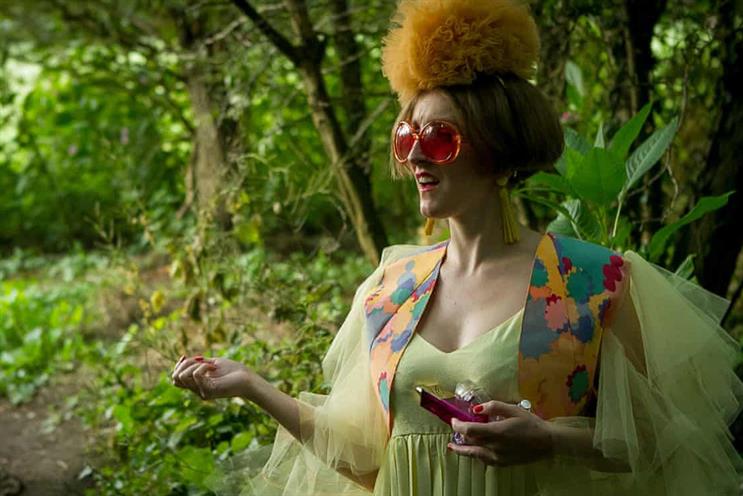Among the irritations of life under lockdown is our inability to go out to enjoy live entertainment. Fortunately, brands and event companies have moved quickly to reconceive lots of the entertainment we used to take for granted, from pop concerts and dance parties to family festivals. Secret Cinema is the latest to go digital, creating an online counterpart to its epic events that combine film screenings with immersive elements.
While those formats have long proven fertile ground for brand partnerships, there's another area of live performance marketers haven't traditionally paid much attention to, but I think it's time they did: theatre.
Although 100% of theatres across the UK have closed as live venues, the industry has not ground to a halt. Organisations including the , and are making performances from their back catalogues available to watch online, while others are (more interestingly) making use of platforms including Zoom and Facebook to live-stream productions that are either adapted for the internet or in a "site-specific" approach.
While there are big limitations (some more obvious than others) to the potential of live-streamed performances during social distancing, of William Shakespeare’s The Tempest (pictured) demonstrates where you can get to with just the basic tools of Zoom. But where the technology comes into its own is telling stories in which that technology itself plays a role. And that’s really valuable, because video calling is how we are all living most of our lives right now.
The world has in effect become a big social laboratory in recent weeks and, as well as generating data for actual social scientists, it’s telling us all sorts about who we are – as both individuals and a species – and we will need stories to process that. Zoom, Houseparty, Hangouts et al are a feature of everyone’s story right now, meaning they are naturally suited to host performances that tell those stories. Something similar can be seen in podcasts, where a number of compelling audio dramas have launched in recent years – many of them framed as fictional podcasts.
Aside from the ongoing truth that arts companies struggle for income, there are particular reasons brands should take an interest in live-streamed theatre. Unlike live performances in person, there is in effect no limit to the size of the audience and it can be an entirely known quantity, with all the benefits that brings.
It can also be cheap or free (if you want it to) for people to attend – unlike theatre, which often charges ticket prices that exclude many potential goers. But unlike film and TV, it remains intimate, to a degree; audiences are still likely to be small by TV standards and there is great scope to incorporate interactivity.
There are various ways that brands could support digital theatre, including traditional advertising; there’s no reason screen-based live performance can’t be treated like cinema, with high-quality film ads shown beforehand. Brands could also create or commission their own full shows – although, unless done with a high degree of wisdom, I suspect this would attract about as many viewers as Rustlers’ feature-length German arthouse movie The Seas Between Us.
(A special case would be if Zoom, Google and the rest were to support the creation of theatre on their own platforms – a development that could be exciting, but might raise similar concerns to .)
Instead, the approach I’d love to see would involve brand sponsors creating mini-plays of some description as a warm-up to the main event, or otherwise using the intrinsic properties of the format to find creative ways to engage the audience.
Given how little there is for people to do at the moment, I suspect most would be tolerant of a certain amount of clumsiness from brands trying this, just as long as they’re making something – anything – happen. That said, there is no need to accept clumsiness when we have creative agencies packed with accomplished thespians (along with every other variety of artist) who ought to be itching to put their creative energy into something like this.
Back in 2017, Adam & Eve co-founder David Golding wrote in 北京赛车pk10 that adland was dividing into agencies that create culture and those that create marketing collateral. While great ad campaigns can obviously be sources of culture, anyone aspiring to be part of Golding's first group should think of their role in terms of not just creating cultural output but supporting cultural infrastructure.
Before the scale of the crisis became clear, immersive-theatre company Punchdrunk and Sky announced plans for "the world's first immersive TV drama", with a story spanning both TV and live theatre, plus an option to follow the latter online. Now delayed to the autumn, this project is a hugely exciting development that I hope marketers watch as closely as theatre and TV fans.
As Gideon Spanier lays out in a recent column, the situation for our economy and our industry is extremely serious and companies of all kinds should be forgiven for thinking that now is not the time for trying new things. But we must hope that the marketers fortunate enough to find themselves working somewhere with relatively good prospects for this year recognise the opportunity they have to make brand new things happen and to leave a long-lasting positive impact on culture.
Simon Gwynn is deputy news editor at 北京赛车pk10



